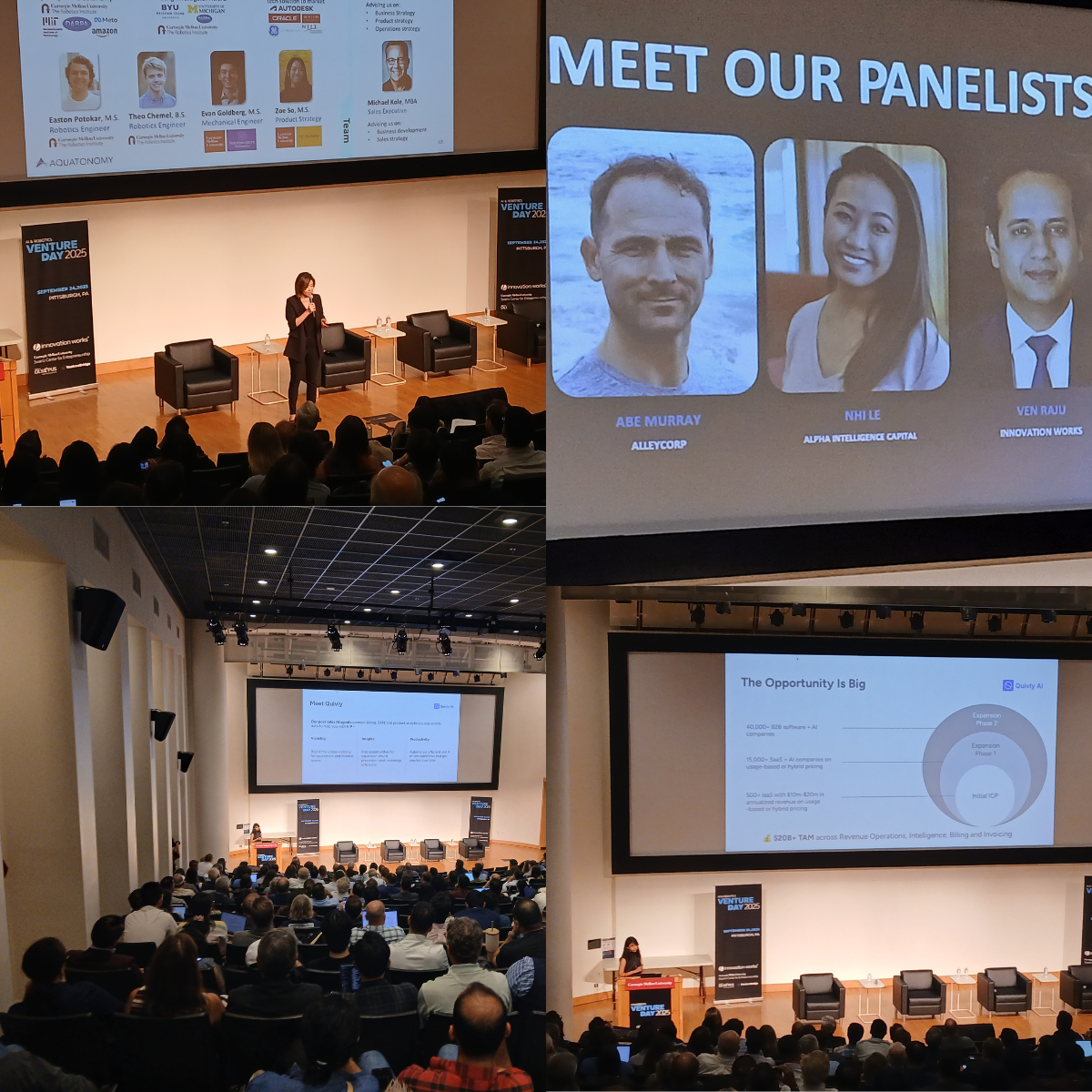Carnegie Mellon University Startup Week Highlights Pittsburgh’s Innovation Ecosystem
By Sheena Carroll
 Carnegie Mellon University’s Startup Week returned September 23-26, bringing together founders, investors, researchers, and industry leaders to showcase the region’s entrepreneurial and technological innovation. Hosted by the Swartz Center for Entrepreneurship and cross-campus partners and Innovation Works, the event featured more than 25 programs spanning sectors from AI and robotics to health tech and advanced materials.
Carnegie Mellon University’s Startup Week returned September 23-26, bringing together founders, investors, researchers, and industry leaders to showcase the region’s entrepreneurial and technological innovation. Hosted by the Swartz Center for Entrepreneurship and cross-campus partners and Innovation Works, the event featured more than 25 programs spanning sectors from AI and robotics to health tech and advanced materials.
With roughly 2,000 registrants, CMU Startup Week offered a packed but high-quality schedule, including student showcases, pitch talks, networking opportunities, and an investor panel. The program highlighted both student-led ventures and research-driven startups emerging from CMU labs, many of which focus on translating academic research into commercially viable products.
The Deep Tech Startup Showcase, an invitation-only event, provided investors with a curated look at ventures led by CMU faculty, PhD candidates, and postdoctoral researchers. Companies presented innovations across AI, robotics, cybersecurity, and healthcare.
Meanwhile, the Swartz Student Startup Showcase allowed students and recent alumni to exhibit their companies, with over 40 startups participating. Several of these ventures had received early-stage funding through programs such as the Bruce S. Gebhardt Sandbox Fund and Project Olympus Spark Grants.
“Startup Week is a big ambitious week right at the start of the academic year,” said Meredith Meyer Grelli, Managing Director and Interim Executive Director of the Swartz Center. “It’s about bringing founders together, attracting investors, and helping our community think big.”
The AI & Robotics Venture Day on September 24 featured a panel with investors Abe Murray (AlleyCorp), Nhi Lee (Alpha Intelligence Capital), and Ven Raju (Innovation Works). Panelists highlighted Pittsburgh’s unique strengths, including CMU’s technical talent, decades of industrial expertise, and an ecosystem that supports scalable technology solutions.
While investors noted that AI and robotics are rapidly growing sectors, they remain underfunded compared to software-focused startups. Panelists emphasized that Pittsburgh startups could leverage local resources, affordable operations, and institutional support to create high-impact businesses.
“Think big, act like underdogs, and seize the moment,” Murray said. “Pittsburgh isn’t just competing; it’s shaping the future.”
The local companies showcased at Venture Day exemplified the region’s innovation potential. One of them, Aquatonomy, is building autonomous underwater vehicles to inspect and monitor submerged infrastructure. Cofounder Xiaoyu Kaess praised Venture Day, saying, “It was a very high-quality event, for both the companies and the investors,” though she noted the challenge of attracting investor attention to robotics and hardware in a software-driven market.
Reeg Allen, CEO of Journey Robotics agrees with Kaess that there is somewhat more investor interest in software compared to hardware at the moment. Journey is developing baggage-handling robots for airports to address labor shortages and improve throughput. With growing international interest in their product, Allen said that Venture Day, particularly the investor pitch session, “led to lots of good connections to get our seed round going.”
Another featured company, Troupe, uses AI to optimize company storytelling across content, calls, and emails. Troupe focuses on improving companies’ marketing in a holistic way while also filling the data visibility gap. Cofounder Austin Webb predicts a shift in the near future from investors focusing on LLMs to AI applications like Troupe. Webb also praised the event, saying, “it’s good to show the world what home-grown tech in Pittsburgh looks like.”
Looking ahead, Grelli noted that CMU plans to expand Startup Week to other innovation hubs, including San Francisco and New York, connecting founders with investors nationwide. She emphasized the convergence of CMU’s AI and data science expertise with Pittsburgh’s life sciences legacy, positioning the city as a growing center for AI-enabled healthcare and other advanced sectors.